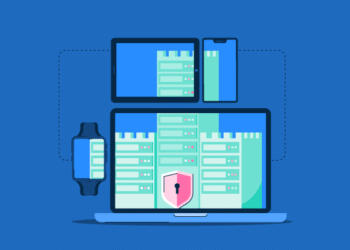
Plus: Utah Senator deletes AI-generated statement on X; Humana CEO addresses prior changes.
Independent content creators have the potential to rack in big money and huge reach if they play their cards right.
The former rapper turned podcaster and founder of The Joe Budden Network opened the doors to explain his model for success, one that is earning his podcast network more than $20 million this year.
“Publishers of shows rarely share details of their revenue, or even their download or streaming figures. They want to maintain a competitive edge in the advertising marketplace and, like many private businesses, simply aren’t keen to open their books,” The New York Times reports.
But Budden decided to be fully transparent in a bid to show creators why and how maintaining independence is beneficial in the long run.
In 2018, Budden snagged a licensing deal with Spotify, but he found he was restricted by their terms. They paid him a fixed salary of $2 million per year, with no ad-share revenue, and his show could only be published on their platform.
“After a rather acrimonious split, the podcast sought a new partner,” the Times reports. “But the right deal never materialized; one potential contract would have paid $44 million over two years, for example, but required removing all content from YouTube.”
Unsatisfied, in 2021 Budden decided to start his own network, leaning into paid subscriptions via Patreon and passive ads on video clips played on social media. The network has been on an upward trajectory since, with his Patreon subscriptions drawing $1 million a month since November, in addition to ad revenue. He now employs 30 independent contractors as support staff and is looking to expand his offices.
Why it matters: Budden’s success points to a major shift in how information is consumed. No longer do legacy news outlets dictate relevance or reach.
Independent media is a trend that is booming, drawing in millions of dollars and competing with traditional outlets in a way we haven’t seen before.
PR pros now have access to creators who are directly engaging with followers, building communities and making their own editorial choices.
Budden’s Patreon, which in one month showed 30 million hits, is a reminder that independent media is not niche. Instead, it is rapidly outpacing other networks and diversifying where people look for content.
“Podcasters on Patreon earned more than $472 million collectively in 2024 — up 35 percent from 2023, according to the company,” the Times reported
There is an opportunity to reach huge audiences on multiple platforms, which means stories and information that can be shared and re-shared, boosting engagement.
Editor’s Top Reads:
- This week, Senator Mike Lee (R-Utah) shared a post on X that appeared to be a resignation letter from Fed Chairman Jerome Powell. “Powell’s out!” Lee wrote above the statement with a couple siren emojis. He soon deleted the post — because it wasn’t real. The statement is believed to have been AI-generated, CNBC There were a couple of red flags that Lee missed but shouldn’t have. First of all, the statement was addressed to “The President.” The letter included misshapen logos and non-English characters. Lee’s re-posting of the statement underscores the importance of vetting information before it turns into social media-fueled speculation. Lee’s credibility will take a hit as well. Leaders and organizations must be diligent and extremely careful not to perpetuate false information. It can destroy relationships, alienate stakeholders and negatively impact your organization, no matter the intention behind it.
- Health care provider Humana announced this week it will cut down on prior authorization requirements. Doing this will make your doctor’s visit faster, the company said. In a press release, Humana CEO Jim Rechtin was quoted as saying, “Today’s healthcare system is too complex, frustrating, and difficult to navigate, and we must do better. We are committed to reducing prior authorization requirements and making this process faster and more seamless to better support patients, caregivers, physicians, and healthcare organizations.” Healthcare insurers have seen increased pressure, particularly following the murder of UnitedHealthcare CEO Brian Thompson, to reform, cut down on tedious steps and improve. While Rechtin emphasizes that prior authorization offers important checks, making the case for why it’s a necessary step, he also places value on the customer and acknowledges that the system is flawed. Keeping his message clear, there’s no room for confusion. By placing emphasis on the benefits of the action, Rechtin is addressing the “why.” And by acknowledging that the process isn’t perfect, he’s taking ownership. Rechtin also posted a link to more information, offering further education on the subject. Organizations that are clear, genuine and offer resources ensure stakeholders will be satisfied during times of change.
- Replit, a tech company that uses AI to build platforms and websites, drew some backlash after one of its clients had their entire database wiped while using Replit’s AI agent. But Replit CEO Amjad Masad reacted quickly. In a post on X, he said, “We saw Jason’s post. @Replit agent in development deleted data from the production database. Unacceptable and should never be possible…Thankfully, we have backups. It’s a one-click restore for your entire project state in case the Agent makes a mistake.” Masad went on to say he personally reached out to the upset customer, as soon as he became aware of the situation to offer assistance. He followed up with, “We appreciate his feedback, as well as that of everyone else. We’re moving quickly to enhance the safety and robustness of the Replit environment. Top priority.” Masad did a few things right here. He responded right away, not just on social media, but directly to the customer. He acknowledged the misstep, citing it as “unacceptable.” He thanked Replit’s customers for their feedback and didn’t shy away from what could have been a crisis situation. Responding quickly, taking ownership and being personal can go a long way when you make a mistake.
Courtney Blackann is a communications reporter. Connect with her on LinkedIn or email her at courtneyb@ragan.com.
The post The Scoop: This is how much money an independent podcaster can make appeared first on PR Daily.














